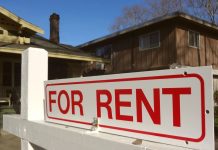Office subleasing flooded during the pandemic as organizations dashed to cut back their land while representatives telecommuted.
However, there are signs that subleasing is easing back – a sign that organizations accept they need that office space all things considered.
In Sydney’s downtown area, the measure of sublease office space fell 8% in the primary portion of the year.
In Manhattan, almost 1.4 million square feet (130,000 square meters) of sublease space has been removed from the market so far this year, with almost 66% of that happening in the beyond two months, JLL information show.
Moreover, 77% of that space has been re-involved by the first inhabitant. Among the organizations reclaiming space that they had recently positioned on the sublease market incorporate McGraw Hill, Oscar, and BMO.
“Many major renting markets are encountering a good turn, reflecting further developing opinion and an inclination that we have arrived at top subleasing,” says Tim O’Connor, head of renting in Australia, at JLL. “However further COVID-19 episodes could hamper a bounce back, examples from the beyond a year and a half places property managers and occupants in great stead for obstacles that could in any case come.”
Why subleasing bounced
Last year, with representatives to a great extent telecommuting, organizations hoping to reduce land expenses leased their office space.
Enormous firms specifically confronted strain to do as such from their sheets and investors. For instance, Australian bank NAB focused on subleasing two structures in Melbourne, which presently represents 635,070 sq ft of the 2.1 million sq ft of current subleased space in the territory of Victoria.
Be that as it may, with immunizations carrying out and monetary recuperation in progress, organizations are advancing with techniques to guide representatives back to the actual office, something for which many are anxious.
San Francisco-based inhabitants, for example, Levi Strauss have reclaimed space that they initially positioned on the sublease market.
In Sydney, PwC, EY and Uber have done likewise.


































